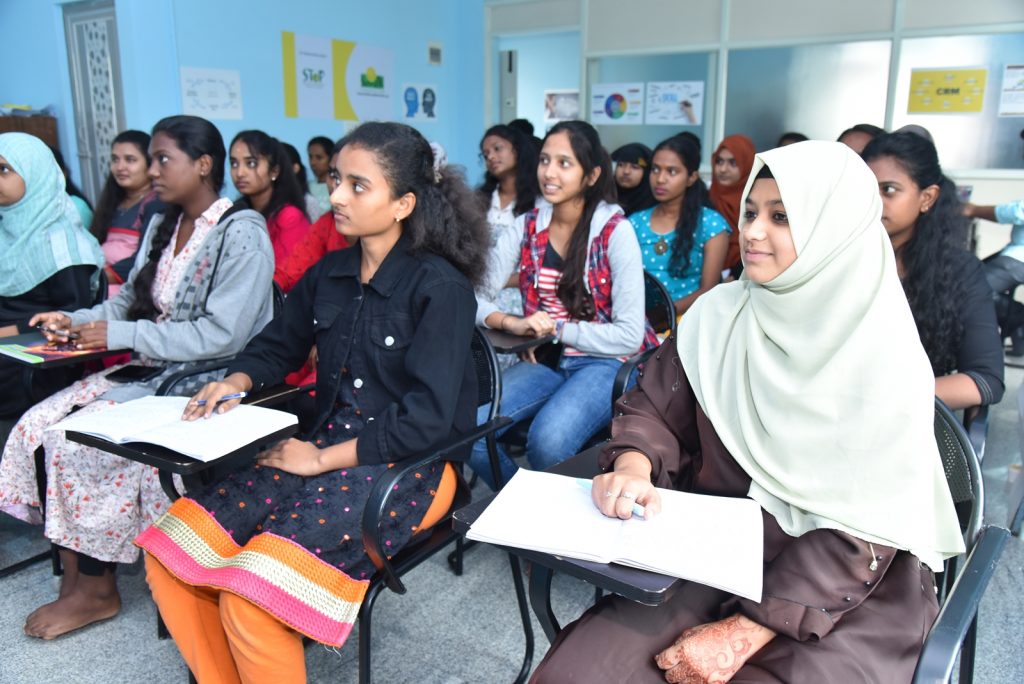Information Technology (IT) and IT-enabled Services (ITeS) have played a critical role in the development of India’s economic landscape. It provides a diverse array of courses that are tailored to the changing needs of the global digital economy. The Indian IT-ITES industry was virtually non-existent prior to the mid-1990s, but has since emerged as a significant global actor. In order to remain at the forefront of the digital landscape’s rapid evolution, professionals are striving to leverage the power of cutting-edge skills and expertise. The government of India promotes the active development of digital skills among stakeholders through a variety of programmes (NULM, PMKVY, etc.).
The Skill India Mission (SIM) is a well-organised and well-equipped initiative representing a new technical education direction. With a focus on the overall technological development of the country, it offers a variety of skill-related training programmes, starting with computer applications, tailored to the needs of various government and private institutions. It also equips the Indian workforce with the requisite skills to enable them to become self-sufficient and employable, as recognised by the Government of India. The initiative was aimed at establishing a pool of qualified workers who could help fuel the country’s economic expansion.
The Indian Scenario
Sector Skill Council (SSC) NASSCOM is the national standard-setting entity for IT Skills, established under the auspices of the Ministry of Skills Development & Entrepreneurship and the National Skill Development Corporation. With its various alliances and initiatives it provides students with the advanced skills that are indispensable in the swiftly changing digital environment of the present day; assistance in securing employment with certification from an industry; upskill students for the future in terms of new-age skills and employment opportunities; keep track of the most recent government initiatives.
Universities and educational institutions collaborate with SSC NASSCOM to provide students with programmes that serve as either an elective course to an existing course or an add-on programme. Such alliances offer opportunities for all kinds of students from various backgrounds and capabilities. SSC NASSCOM develops pertinent academic programmes for students and organises training sessions for faculty members at universities or colleges that are involved in this initiative. Additionally, SSC NASSCOM offers guidelines and recommendations regarding programme specifics, including infrastructure for training and evaluation, faculty selection and student selection. To make the courses more inclusive and accessible, they are often free of charge and cater to a diverse range of interests, from basic computer skills to programming, website designing and cyber security, and more.
Multiple prestigious institutions in India are recognised for their IT and ITeS programmes, with tougher standards of seeking admission. Indian Institutes of Technology (IITs) provide exceptional engineering and technology education with an emphasis on research and innovation. Private universities such as BITS Pilani and VIT provide specialised programmes that are designed to align with the most recent industry trends. With comprehensive courses, these institutes produce professionals who stand out and succeed globally
Lack of Employability
Even with suitable government programmes in place to help learners flourish in a technologically interconnected world, the youth’s lack of employability remains a major concern.
Employability will continue to be a challenge in the absence of sufficient computer skills. In order to effectively promote employability, the Skill India movement would need to refocus its efforts on the new path. In India, there are numerous computer science graduates who are currently unemployed due to the fact that the skills they have acquired are insufficient or that they require reskilling with the emerging and significant skills in the current industry.
Currently, there is a growing trend among young people to pursue skill sets in areas such as artificial intelligence (AI), cloud computing, cybersecurity, and data science and analytics. However, state-funded courses frequently emphasise conventional skills, including basic programming, data entry, and customer support (voice and non-voice). As a result, it is necessary to broaden one’s skill set to encompass Data Science, Analytics, and related fields.
The Need for Collaboration
It is imperative that the government and the industry collaborate efficiently. A critical measure in addressing the lack of employability is to improve industry collaboration in the design of course curricula to address the immediate requirements of the market. The curriculum can be rendered more pertinent to the industry’s requirements by enhancing industry-academia engagement, thereby allowing service providers to reduce their initial training expenses and cultivate a competent workforce. The endeavour must be more comprehensive and should involve partnerships with educational and training institutes in both major and smaller cities. This will involve assisting them in the development of the curriculum, providing faculty training in both relevant content and teaching methodologies, offering internships, and establishing their own training schools. Additionally, it is imperative that IT companies, particularly those of a larger scale, investigate the potential of utilising their substantial cash reserves to establish a sustainable educational system that is in accordance with industry requirements.
Furthermore, the industry should collaborate with academic institutions to ensure that the curriculum is periodically updated to ensure its relevance. In order to maintain its competitive advantage over other outsourcing destinations, India must establish a strong partnership between the government and the industry.
Smile Foundation and IT-ITeS Sector
Smile Foundation’s Smile Twin e-Learning Programme (STeP) in Bangalore is empowering underserved youth by bridging the gap between skills and employment opportunities in the IT-ITeS sector. Started in June 2024, this initiative equips youth with hands-on IT-ITES skills critical for success in today’s job market. Supported by a curriculum developed in collaboration with NSDC and NASSCOM, it addresses industry-specific needs to prepare students for dynamic roles in the tech sector. The courses combine technical skill-building with professional development to boost employability and open doors to sustainable career pathways.
By nurturing young talents, Smile Foundation continues its mission of creating sustainable livelihoods for low-income communities and contributing to India’s growing IT-ITeS industry.









